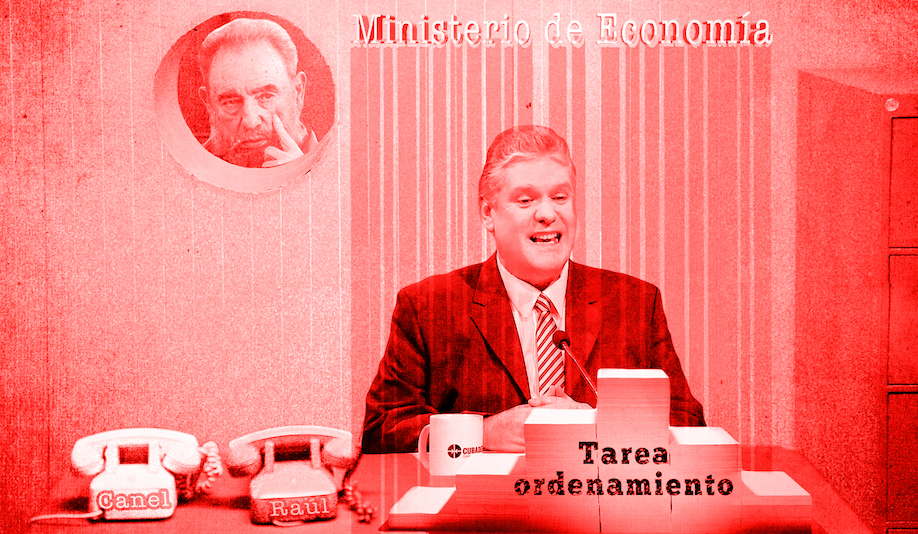It is known that the Cuban Government, a fervent cheerleader for any progressive adventure undertaken any in the world, is, inwardly, deeply conservative, and only changes when it has no other choice. Recent announcements of numerous economic adjustments have focused attention on analysis of them, but there is a question that has not been sufficiently investigated if we take into account the aforementioned aversion to change: why are they taking action now?
An answer must evade any analysis of whether or not the proposed changes are positive for the people, if they are carried out in a more or less transparent way, even if, as it seems, they are or are not dismantling Castroism (which they call socialism), awkwardly and strenuously struggling to avoid an embrace of freedom.
Knowing that they only care about maintaining power, and that they disparage the people they govern, the answer to why they are acting now is: because they have no other alternatives to protect their interests.
According to pure economic logic, the numerous adjustments they are going to make (remember that we are not assessing the quality of these adjustments) should have been made long ago. They have been talking about reunification for decades. If they are making these adjustments in the middle of a pandemic, and with the economy in a particularly dire crisis, where any downturn could be disastrous, the reason can be nothing other than desperation because they are running out of money.
Let us throw some light on this question with some data.
Cuba has been mired in a crisis ever since 1959. The Castro model has never worked, and has survived exclusively thanks to subsidies from the Soviets and, later, the Venezuelans. Since the latter's own crisis worsened, and they turned off the faucet of funds that had sustained a freeloading Cuba, the government of Havana has been faltering.
In 2019 Cuban exports were barely 60% of those in 2014, while imports, which in 2015 reached a peak of 8.385 billion, had fallen to just over 7 billion.
It is of special note that the downward trend sharpened at the beginning of this year, when Cuban monthly imports, which, on average, were 650 million dollars until 2018, plummeted in January, to 393 million. This is a solid indicator that even before the pandemic the government was already running out of money.
Its most important exports provide Cuba with 975 million dollars a month (including remittances, as Cubans are the government's main export) while, on food alone, the country spends 160 million a month. From this it may be deduced, by simple prorating, that in the coffers of the Cuban state, after the loss of its Venezuelan sugar daddy, it has just 88 dollars a month per Cuban, with which it must pay for everything under the sun: medicine, transportation, clothing, construction, machinery and an infinite launtry list, which is totally insufficient.
What remains to be seen is how long they can get by like this until the money runs out.
According to this year's data provided by the Bank for International Settlements (BIS), during the first three months of 2020 Cuban cash reserves in international banks dropped from 2.95 billion to 2.52 billion, a 15% decrease in just three months. This rate represents an acceleration with respect to that in 2019, which saw a quarterly reduction of 5%. More and more is being spent, and less and less is coming in.
All this was prior to the epidemic, which hit the island in March. Far from over, it has already deprived the country of revenues from tourism for two quarters; there are forecasts of a 15% reduction in remittances; extra expenses associated with the pandemic of 1 billion (it is hard to say how much of that is in dollars vs CUP), adding up to an 8% contraction in GDP, an estimate made by the Cuba-friendly ECLAC at a time when it was chaired by… you guessed it, Cuba.
The country has no capacity to save because it is spending just to survive. Any cutbacks, no matter how minuscule, will aggravate the crisis and condemn its people to endless lines.
Nothing indicates that this financial hemorrhaging is waning. Revenues continue to decline and dealings with an ailing Venezuela are going from bad to worse.
Is there anything else, like gold, reserve accounts, or clandestine businesses? We do not know, nor do we know to what extent Díaz-Canel and company can obtain loans on the world market, or from China or Russia, although it does not look like it can get much.
If we do calculations using the BIS data, looking at the drop in the first quarter of 2020, of 430 million dollars (even without accounting for unknown expenses due to the pandemic, or the variations in remittances, which may be temporary) the Cuban government's savings (at least what is declared) could run out by mid-2021.
The good thing about this…is how bad it is getting.
